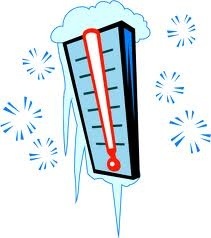 I had nightly fevers in the 38.5 degrees Celsius range for over six months now. A fever can be caused by infection, by the immune system fighting the cancer, or by the cancer itself. A long term fever such as this will not be due to infection, and I doubt that its due to my immune system fighting my cancer either. I am pretty sure that my immune system is quite ignorant as far as my cancer is concerned.
I had nightly fevers in the 38.5 degrees Celsius range for over six months now. A fever can be caused by infection, by the immune system fighting the cancer, or by the cancer itself. A long term fever such as this will not be due to infection, and I doubt that its due to my immune system fighting my cancer either. I am pretty sure that my immune system is quite ignorant as far as my cancer is concerned.
This leaves the last option and I am convinced that my constant fevers are due to tumour activity. Recently I found the most credible theory that explains the causes of tumour related fevers.
In cancer cells, mitochondria, the cells power factories are damaged. This is why cancer cells switch to fermenting large amounts of glucose inside the cytoplasm, as mitochondria can no longer meet the cell’s energy needs. In some cancers, the mitochondria get de-coupled from the cell and instead of producing ATP, the energy molecules healthy cells usually use, they start producing heat directly. This is the same mechanism used in brown tissue which heat the body. Where as in brown tissue the production of heat is regulated, the excess heat produced by cancer cells is what causes the fevers.
Now here is where things start to get interesting. A few days after starting my ketogenic diet, the nightly fevers stopped. The lack of glucose appears to have a positive effect on the cancer’s metabolic pathways.
Three days before my next Chemoembolization procedure I decided to break my ketogenic diet and I carbed up to replace my glycogen and glucose stores. I believed that I would be better able to handle the procedure. In hind sight that was a mistake.
The same day I broke my diet (I had a large chocolate thick shake at McDonald’s among other things), my daily fevers made a comeback with a vengeance, reaching 39.6 degrees Celsius. Day after my TACE procedure I resumed my ketogenic diet, and four days later the fevers stopped again. The timing corresponded perfectly with reaching ketosis.
From these observations I am now convinced that a strict ketogenic diet should be on every cancer patient’s menu. But don’t just take my word for it:
Dear Mr. renw
in theses results you see Thymidinkinase going down. This means that the cell dividing is going down.
Also the LDH(LDH4+5) is going down, this means, that the damage in the mitochondrias is going to be repaired.
The same thing with LSA and M2PK (falling from 484 to 58,9). This means that there is less fermentation, i.e. less tumor cells.
All together is this a very good result.
Best wishes
Dr. Gerhard Siebenhüner

4 Responses to Cancer Fever & The Keto Diet